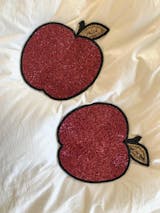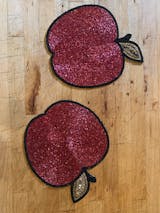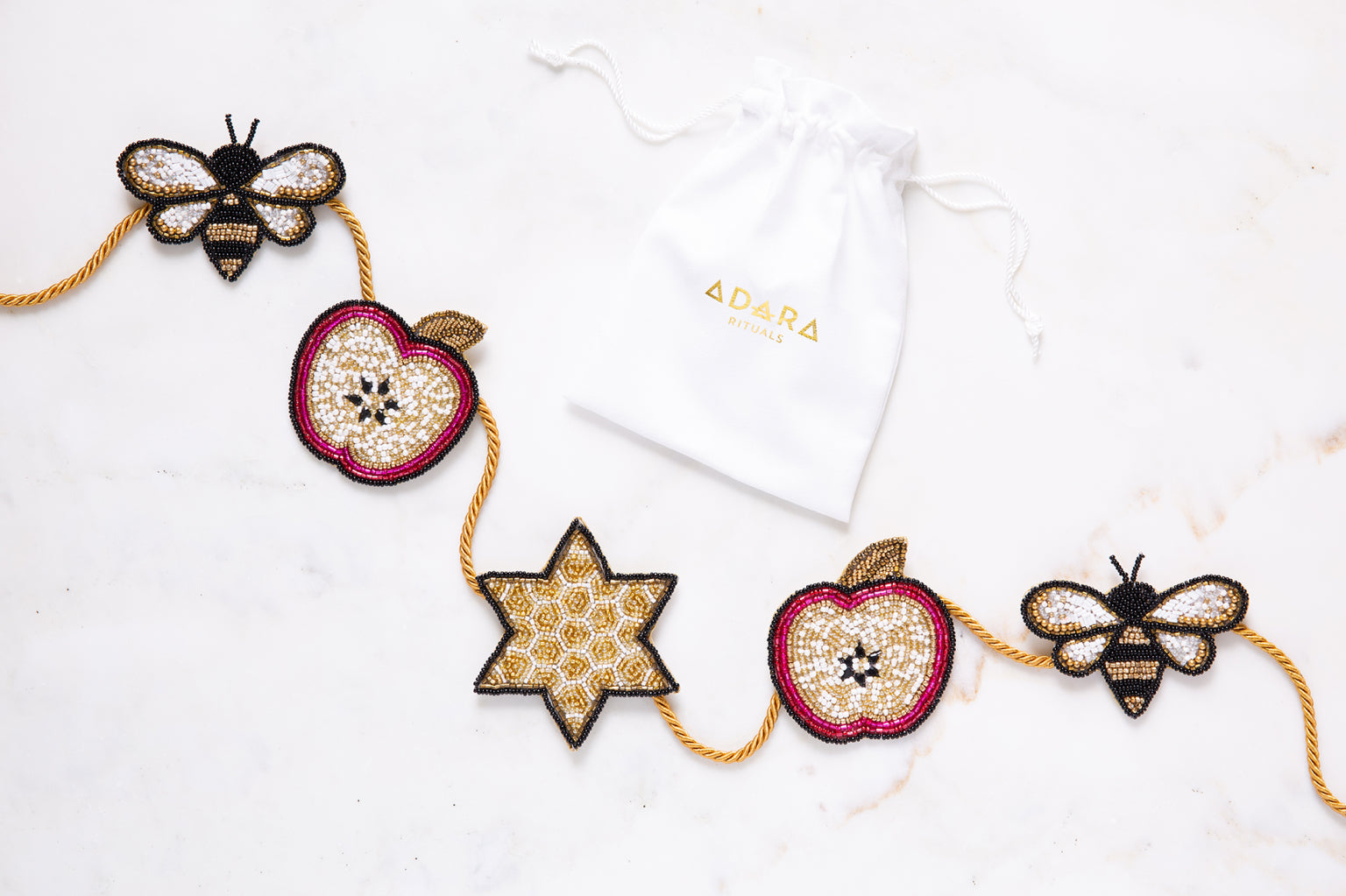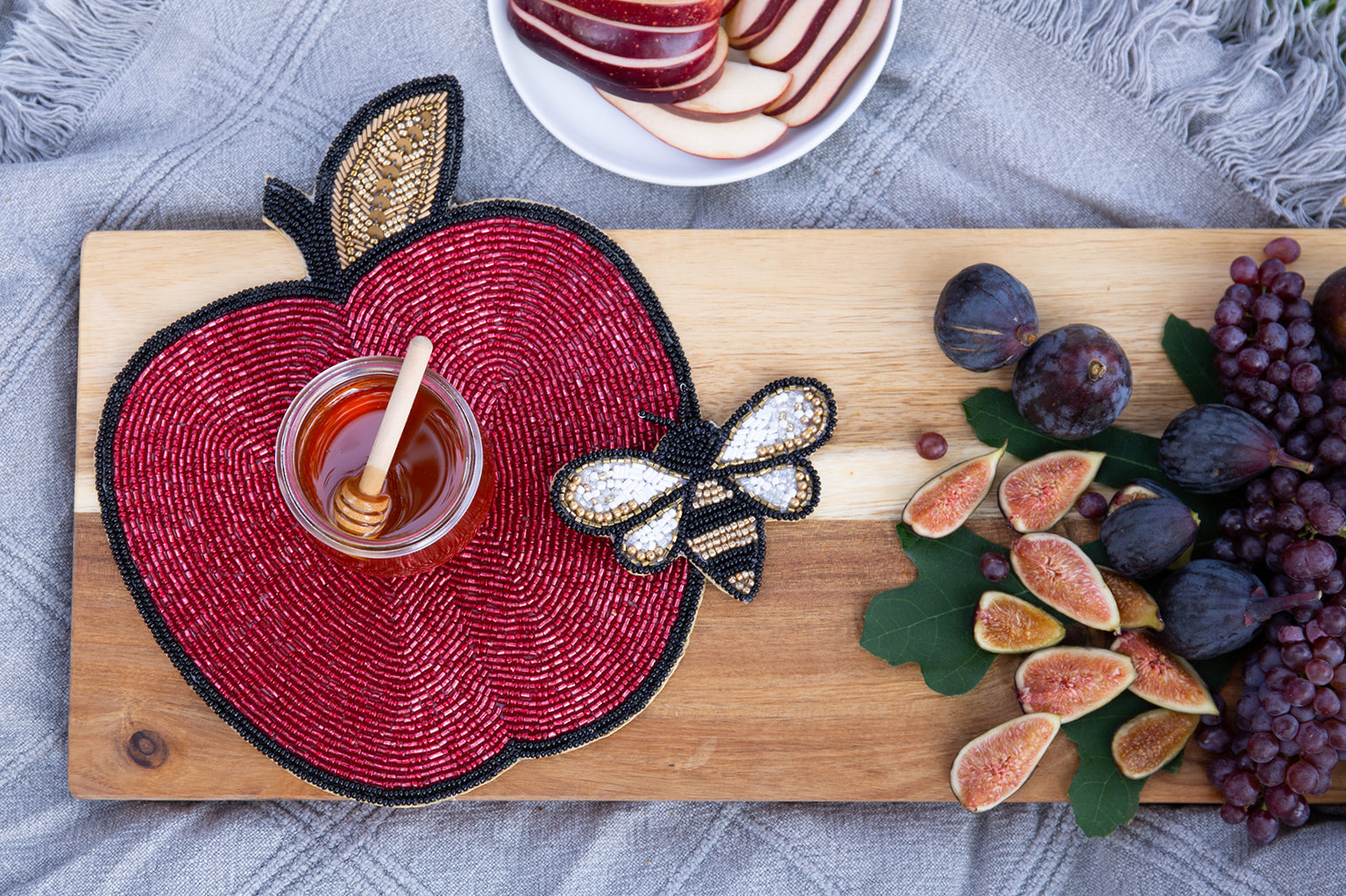
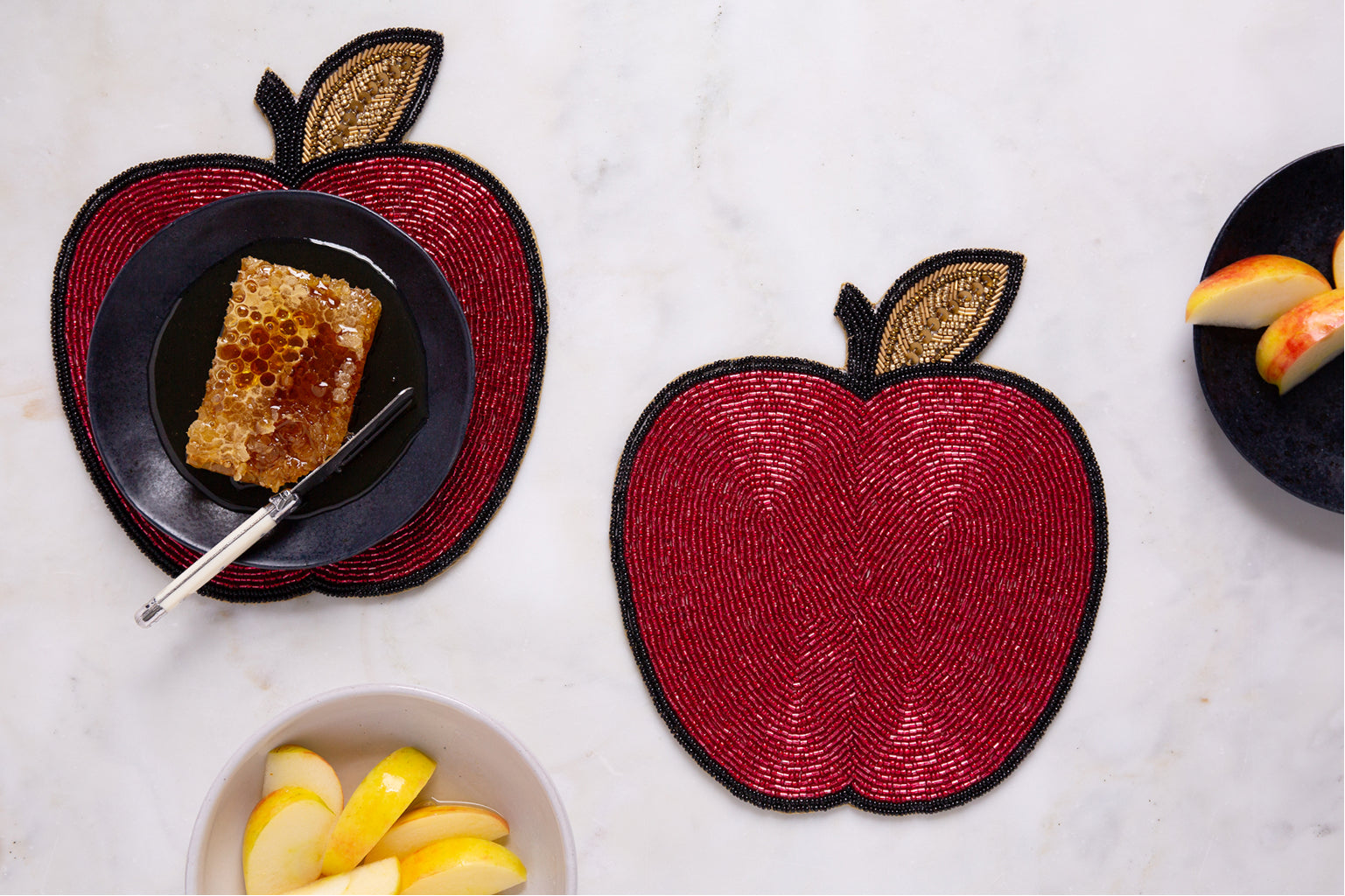
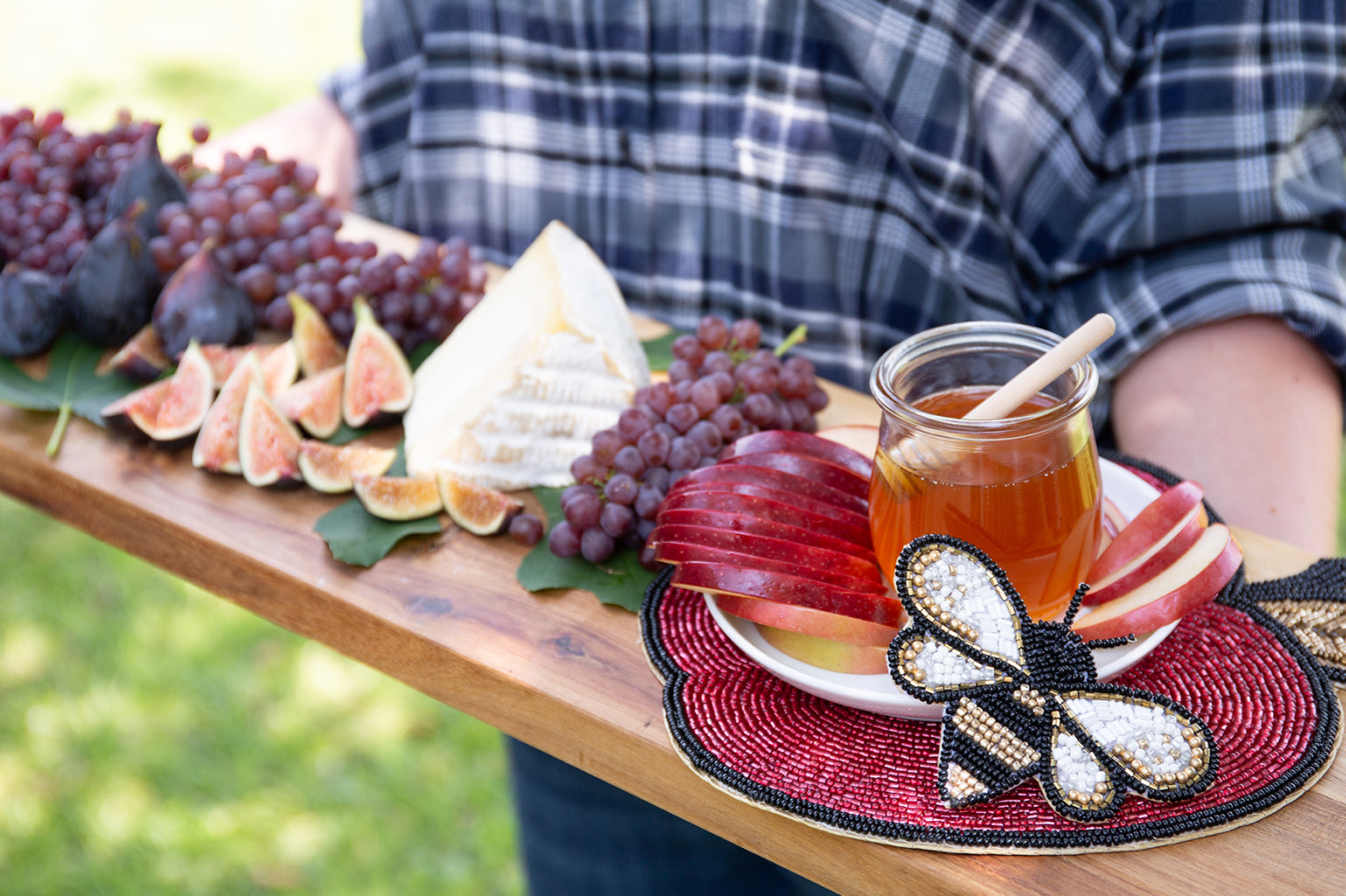
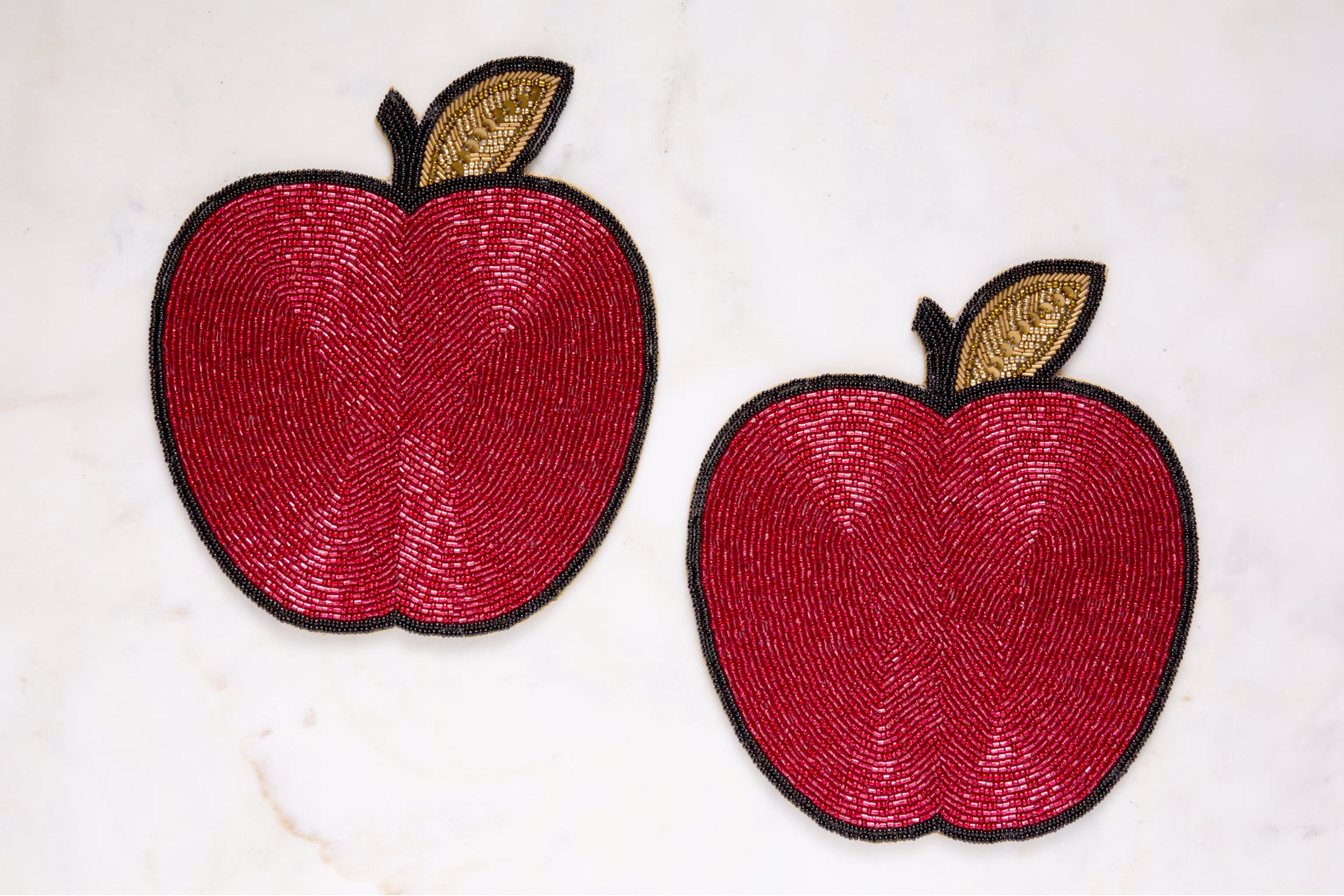
Apple Petite Mats
Ideal for those who cherish tradition and wish to elevate their Rosh Hashanah celebrations with meaningful, stylish decor, our Peri Petite Mats make the perfect addition to your apples & honey station. Inspired by the Hebrew word p’ri, meaning fruit, these mats come in pairs, each apple adorned with a gold leaf made from glass beads and sequins. They offer a beautiful and effortless way to enhance your New Year rituals.
Product Highlights
Jewish Symbolism
Care Instructions
Choose options






